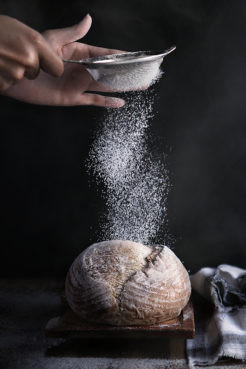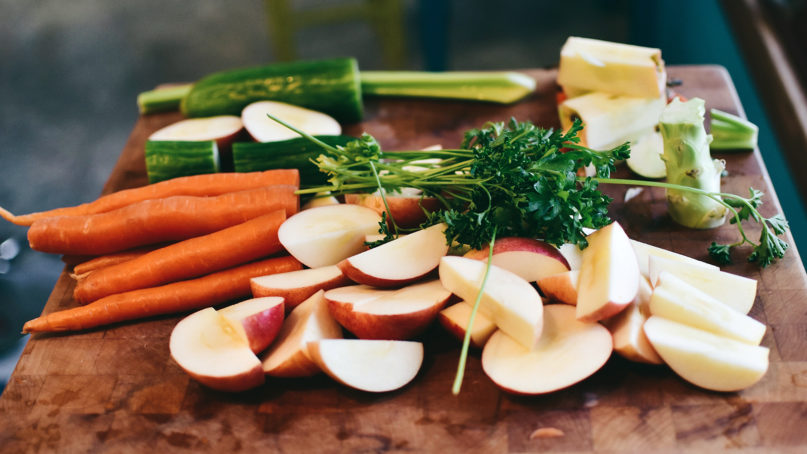(RNS) — As I write this column, my husband is cooking dinner. We have gotten used to this ritual, by now: One or both of us preparing something careful and elaborate, keeping a record of our recipes, day by day, on special writing paper to mark the time.
I almost never cooked in the “before times,” as we all call them now. I lived in a 200-square-foot studio with no counter space and no oven, living off corner-store bagels, supermarket rotisserie chickens and bodega coffee. My husband, though he cooked more than I did (he had a proper kitchen, for starters), still did not do so with the attentive regularity we have now. Work got in the way. Outside got in the way.
It is strange, and perhaps a little bit unsettling, how cooking has become a counterintuitive luxury in the time of coronavirus: at once a vaunted connection with authenticity in this age of increasing disembodiment, and yet also one made possible by the same privileges that allow us to be disembodied: the ability to work from home; the funds to have a week’s worth of groceries delivered.
So many of us now have taken refuge and even delight in a certain nostalgic vision of thriftiness that until recently was widely seen as a hipster affectation: storing up vegetable scraps for stock, using apple cores for syrup, making our own sourdough starters for bread. Something that has, for so much of history, and for so much of the world, been a necessity is now, also, a luxury good: costing not money but time, which more and more of us have now in spades.

Freshly baked bread. Photo by Hoa Luu/Pixabay/Creative Commons
Some of these reasons are, of course, practical: Those of us who have taken up cooking, or baking, or syrup-making, are minimizing exposure to the outside world by minimizing the grocery trips we need. We are passing the time, rendering distinct our days. What we eat for dinner is often the only way to distinguish a Monday from a Wednesday, a Thursday from a Friday.
But we are also feeding into a narrative, albeit a flawed one, of hope: that out of the chaos of the virus there might come some sense of order, or meaning, or beauty, that in the shattering of the status quo we might find renewal.
The coronavirus pandemic has laid bare the worst of our contemporary late capitalist world — enforcing the isolation and digital disembodiment we didn’t realize we’d already taken for granted, revealing the fault lines in a system based on personal profit and not the common good. Our newfound obsession with bread baking and pickling represents our hope for restoring the world before, if not beyond we knew what we know.
When, a decade or two ago, hipster culture started to fetishize slow food, Mason jars, woodworking, it too reflected a collective hope for a kind of post-liberal future, one in which we might recover a kind of physical and natural rootedness to oppose the deracinating capitalism that reduced us from persons (and, no less importantly, living, individual, bodies) to consumers.
Our turn toward authenticity as a result of a lethal pandemic is a cold comfort to those who have died and to their loved ones. We’ve leaped to a fantasy of renewal, a change of the status quo, of “realizing what’s really important,” skipping over their mourning and devastation. But it’s understandable if we respond to the widespread losses by looking inward, discovering a connection to real food and real cooking and making real things, to be in touch with nature and seasonal fruit and planting herbs and potting seeds. It might even put us back in touch with the humanity of others.
The other choice is a world in which we permanently exist at a remove from experience — mediating them through a phone screen, eating food that is prepared for us by someone else, delivered by yet someone else, via a phone app designed by yet another person.
Our coronavirus cooking culture may be rooted in privilege and in a need to feel like this increasingly senseless time has meaning when it would otherwise seem to be too absurd to bear. But it is rooted, too, in hope.






